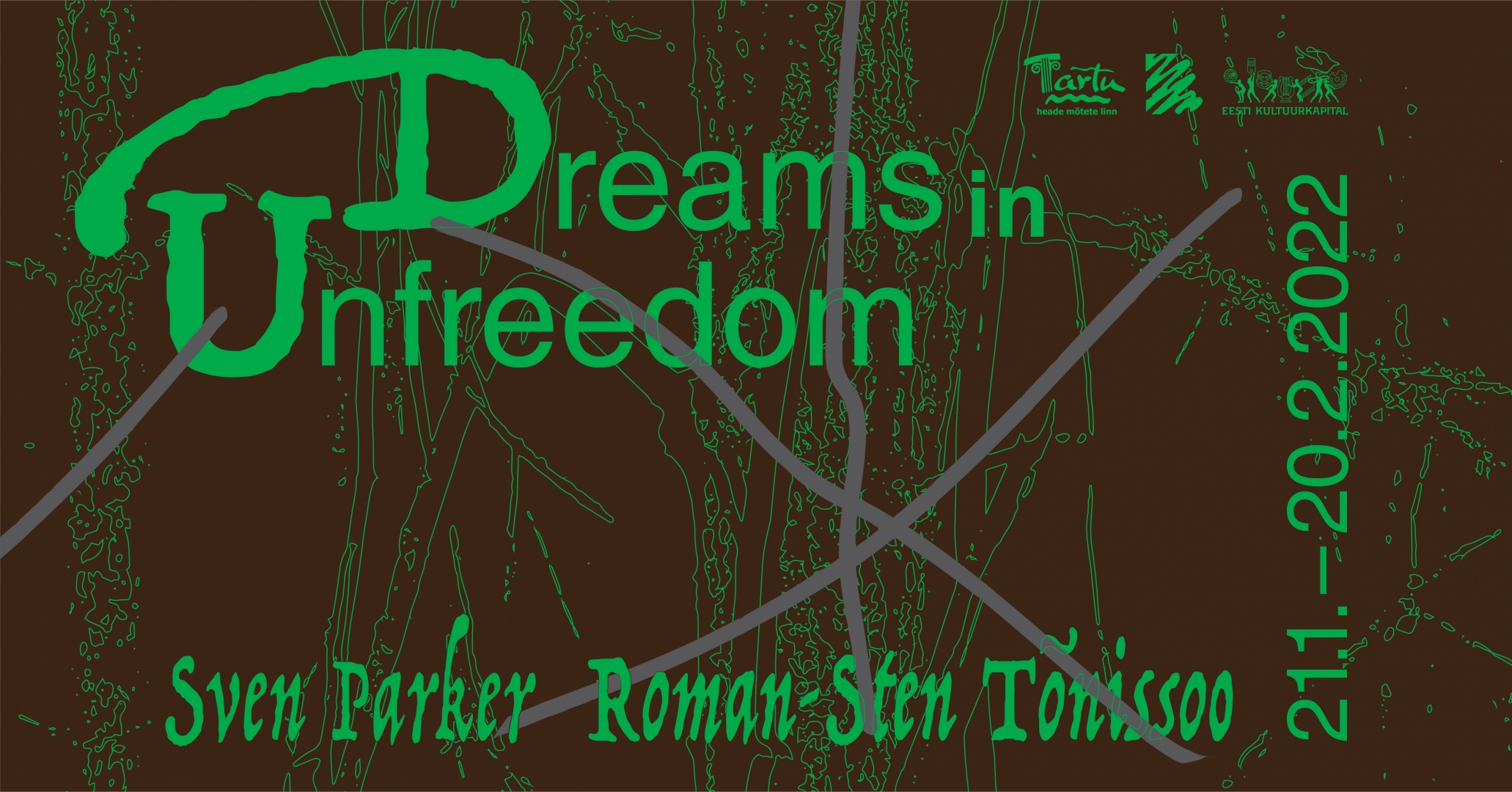The concept of unfreedom, or a non-freedom in the style of Viktor Pelevin, covered in the exhibition denotes a seemingly paradoxical freedom, which is a multifaceted free existence constructed around the regime. Assuming that capitalism exists primarily in a form that maintains the eternal present and novelty – there is no past or future, only the present – one can say that the state of unfreedom is timeless.
What should we grasp in the ethereal, where our picture of reality is based on ever-changing regulations, and experiences constant representation? Synthetic insomnia and substances prolonging the eternal state of the present would be our currency. Imagining an infinite party as an event of synthetic unfreedom, produces the desire to never truly fall asleep, but to fall asleep in a dream, artificially. At one point, however, bodies reach the limits where somewhat malevolent and unsettling molecular biological processes arise, which are necessary for a state of re-tuning, in order to move beyond the stagnation of unfreedom. The party, which must not end, can only continue through various technologies, under the influence of which haunting sensations may infiltrate the clubbing venues.
Sven Parker’s (1985) visual-aesthetic practice is characterised by installations, staging and the use of different collage techniques. At the heart of his current creative activities is the concept of stage props along the lines of relational aesthetics. In 2011, he graduated from the Estonian Academy of Arts with a bachelor’s degree in painting and then continued his studies at the sculpture and installation department.
Roman-Sten Tõnissoo (1989) has graduated from the Estonian Academy of Arts in Contemporary Art (MA) and Photography (BA), and has also studied at FAMU, Film and TV School in Prague. His recent area of interest is the fragile connecting lines between aggression and the sense of security and the possibility for dialogue. As well as the quest for spirituality and higher purpose and the potential these hold in contemporary society.
Madli Ehasalu (1988) is a curator and artworker with a background in semiotics and art history interested in activating works through site-specific, collaborative and educational technology techniques. She founded Gallery Mihhail and the 1st March Gallery, which deal with issues of living environment and social welfare.
Graphic design: Henri Kutsar.




